6 Reasons Parents are Obsessed with European Baby Formulas
This post may contain affiliate links. As an Amazon Associate, I earn from qualifying purchases. Please read my disclosure.If you don’t know about HiPP, Holle, Lebenswert, and Kendamil you’re missing out on the best baby formulas on the market.
If you’re a parent, you’ve probably heard people (including me!) raving about European baby formulas like HiPP, Holle, Lebenswert, and Kendamil. But is this just because European formulas are trendy at the moment, or is it because they are genuinely better than American formulas?
The truth is that not all baby formulas are created equal. Even though you might expect all formulas to be made with healthy, high-quality ingredients, this, unfortunately, just isn’t the case. HiPP, Holle, Lebenswert, and Kendamil. really are head and shoulders above their American counterparts. More and more parents are discovering this for themselves and enthusiastically sharing this information with their friends, family, and neighbors. If you’ve come across my blog before, you know that this is a topic I’m incredibly passionate about, since my own need for formula led me to research all the formulas (best organic baby formulas made in Europe and best baby formula made in the US) in detail and led me to buy HiPP for both of my kids!
Some of the items below were given to me to review by the manufacturer or as part of an affiliate program. I may receive commissions if you make a purchase through the links provided. I only recommend products I’ve actually evaluated, I believe are the highest quality, and can do the most to help you and your family. By purchasing any of these products from the links below, you help keep this blog running, so thanks for your support!
Keep in mind that every person & situation is different, especially yours, so make sure to talk to your doctor and see how these guidelines and tips can help you. These tips are not a substitute for professional medical advice, diagnosis, or treatment. Never disregard or delay in seeking professional medical advice because of something you read here!
There are many reasons why European baby formulas have become so popular in recent years, but here are a few of the most important. When you discover why European formulas have gained such a cult-like following, you’ll want to make the switch. And once your baby is happily enjoying the better taste and health benefits of a top European formula, for many parents, there really is no going back.
Here are the 6 Reasons Why Parents Love European Baby Formulas
1. European Formulas Are More Like Breast Milk
America, why would you ever put corn syrup in baby formula?
This seems like a no-brainer. Baby formulas are intended to be a substitute or a supplement for breast milk, so you would think that they would be designed to approximate the real thing as much as possible.
However, many U.S. formulas have little in common with breast milk, particularly when it comes to sugar. Lactose is the main carbohydrate source in breast milk, but U.S. formulas often use processed sweeteners such as corn syrup, maltodextrin, or even sucrose (table sugar) because they are less expensive.
If breast milk contains lactose, shouldn’t formula? After all, babies are born with lactase enzymes to help them break down lactose (with the exception of babies who are allergic to lactose or milk proteins), which is vital for promoting calcium absorption and a healthy digestive system. The leading European formulas feature lactose as the main carbohydrate, typically from organic, non-fat cow’s milk.
In addition to carbohydrates, the other main components of breast milk are proteins and fats.
- Many European formulas contain added whey, which helps make the cow’s milk base more similar to the protein composition of breast milk.
- In terms of fats, European formulas typically contain a combination of organic rapeseed/canola, palm, sunflower, and/or coconut oils, which mimic the complex blend of fatty acids in breast milk.
- Unfortunately, nearly all U.S. and European formulas contain some palm oil, which is not ideal due to its environmental impact and the fact that it can cause minor digestive issues like gas. However, European formulas typically contain less palm oil than American formulas do, and when combined with the other plant-based oils, this small amount of palm oil is very unlikely to cause issues. (Learn more: Palm Oil In Baby Formula).
- Quite a few European formulas also contain prebiotics and/or probiotics, which are found in breast milk and contribute to a healthy gut microbiome.
- Long-chain polyunsaturated fatty acids like DHA and ARA are additional components of breastmilk that are included in many European formulas to promote eye and brain health.
2. European Formulas Are Held to Higher Standards for Organic Ingredients
No sucrose, no pesticides, no G.M.O. ingredients.
In the United States, the Food and Drug Administration only sets out some very basic guidance about the nutrients that should be included in baby formula. As long as the ingredients are broadly “safe” and contamination-free, there are no specific guidelines about which carbohydrates, proteins, and fats can be included, leading to frequent use of inexpensive, processed sweeteners such as corn syrup and glucose syrup.
In contrast, the European Commission has far stricter standards for the acceptable ingredients in infant formula.
- Perhaps most significantly, European baby formulas with intact milk proteins are not allowed to contain any sucrose.
- Furthermore, their carbohydrate content must consist of at least 30% lactose.
- Other ingredients and preservatives that are prohibited in European formula include pectins, fructans, and carrageenan.
Relying on corn syrup as the main carbohydrate is not just unhealthy, but it also means that U.S. formulas may contain genetically-modified ingredients, as much of the corn supply has undergone some form of genetic alteration.
The best European formulas, such as HiPP, Holle, and Lebenswert, are made with milk from biodynamic farms, which means that not only are the formulas organic, but they are also completely free of pesticides and genetically-modified ingredients, and the milk comes from grass-fed cows on sustainably-operated farms.
3. European Formulas Are Less Likely to Lead to Childhood Obesity and Diabetes
Keep your baby and your baby’s blood sugar levels happy.
Because lactose is the main carbohydrate in breast milk, babies are naturally able to break it down, without causing the pancreas to work overtime. On the other hand, corn syrup and other processed sweeteners are sweeter than lactose and have a higher glycemic index, making it more difficult to regulate blood sugar levels.
Babies enjoy sweet tastes, but lactose (which is, after all, milk sugar) is certainly sweet enough. Introducing babies to processed sweeteners so early on is likely to cause them to develop a sweet tooth, ultimately leading them to seek out sugary foods in childhood and adulthood.
Although the long-term health impacts of consuming sucrose and/or corn syrup in infancy have yet to be fully understood, various studies have suggested that there could be a link with obesity, cardiovascular disease, liver disease, and type 2 diabetes.
Sources:
- Journal of Pediatric Gastroenterology and Nutrition
- The American Journal of Clinical Nutrition
- CBS News: High fructose corn syrup raises heart disease risk, study finds
- Baby Formula Expert: Why Is There Sugar in Baby Formula?
4. Health and Nutrition Experts Have Discovered European Formulas and their benefits
See what the top health and nutrition bloggers have to say about why European formula is better.
Even if you haven’t heard much about European formulas from other parents, a quick Google search will show you just how frequently they are being discussed online. You’ll find numerous parenting and nutrition blogs that are wholeheartedly endorsing HiPP, Holle, and Lebenswert formulas, with detailed reviews, ingredient discussions, and recommendations about specific formulas that can help with issues such as constipation (learn more: best formula for constipation), tummy upset, and allergies. There are also amazing tools like this one from BestBabyFormula.org to help you find the perfect formula for your baby.
5. European Formulas Can Now Be Purchased Online, With Fast Shipping and Guaranteed Freshness
Your baby’s new favorite formula is only a click away!
Sourcing high-quality European baby formula may have once seemed expensive and complicated (it was in 2014 when I was buying it for my daughter!), but in 2019, it’s anything but. There are now quite a few online retailers of baby products that consistently stock a wide range of the best European formulas at competitive prices.
Of course, it’s always important to purchase baby formula from a reputable source. There are several retailers that are particularly known for importing European baby formula that always meets the highest standards for quality and freshness. I have personally vetted a handful of these retailers and can vouch for the fact that they are reputable and trustworthy.
[Click here to see my post on where to buy]
It’s also crucial that parents are always able to have their favorite formula on hand, and since you can’t dash to the supermarket to pick up these products if you suddenly run out, retailers need to be able to guarantee fast shipping times. Luckily, there are several retailers that offer both standard and overnight shipping options.
6. There Is a Large Community of Parents Sharing Their Experiences with European Formulas
Got a question about European formula? There are 11,000+ moms and dads ready to help!
Choosing the right baby formula is a very important decision, yet it can also be fraught with stress and uncertainty. So it’s only natural for parents to want to share their personal experiences with different European formulas in blogs, forums, and on social media, in order to help each other make the most informed decisions.
One of the most active online platforms for parents to discuss European formulas is the HiPP & Holle Formulas Parent Support Community on Facebook. With over 35,000 members, this Facebook group is a great resource for parents who are interested in learning about European formulas from those who have firsthand experience. It’s a welcoming and nonjudgmental community in which no question is too strange and no concern is too small. Many of the group’s admins have backgrounds in health-related fields, while the members have a huge wealth of experience about every aspect of infancy, and particularly baby formula.
My journey with breastfeeding and formula feeding led me to these European formulas, primarily because I didn’t want to feel guilty about giving my kids formula and wanted to find the closest-to-breastmilk, organic options available to me. When it comes to feeding your baby, whether you choose breastfeeding, formula feeding, or both; the most important thing is that your baby gets the nutrition they need, and that both parents + baby are happy and healthy. And if you choose to go the formula route, I just want to help you find the formula that’s best for your little one!
[For more information on the best baby formulas, including my recommendations on where to buy, click here] And if you have any questions about European baby formulas, don’t hesitate to leave me a comment or send me an email, I respond to every single message I get!




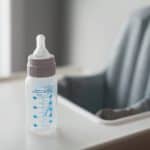



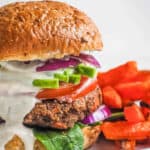

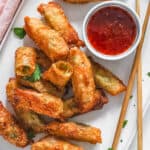

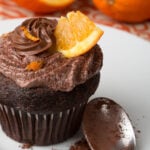
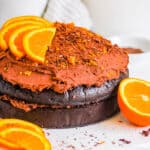
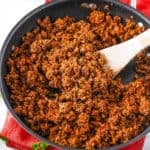
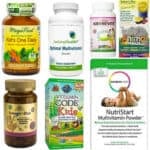
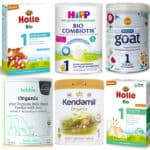

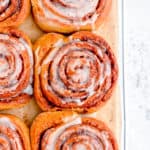
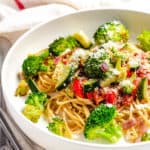
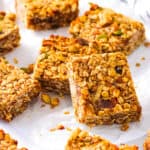



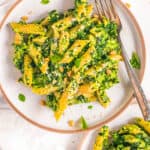
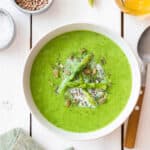
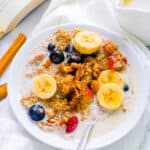
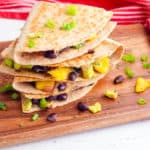

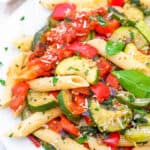
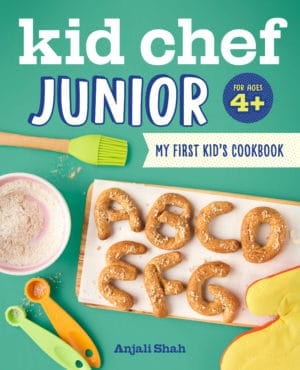


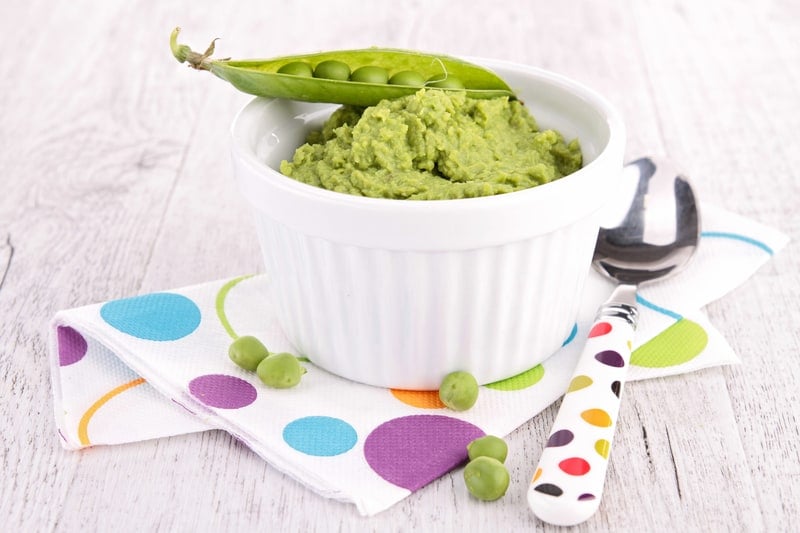
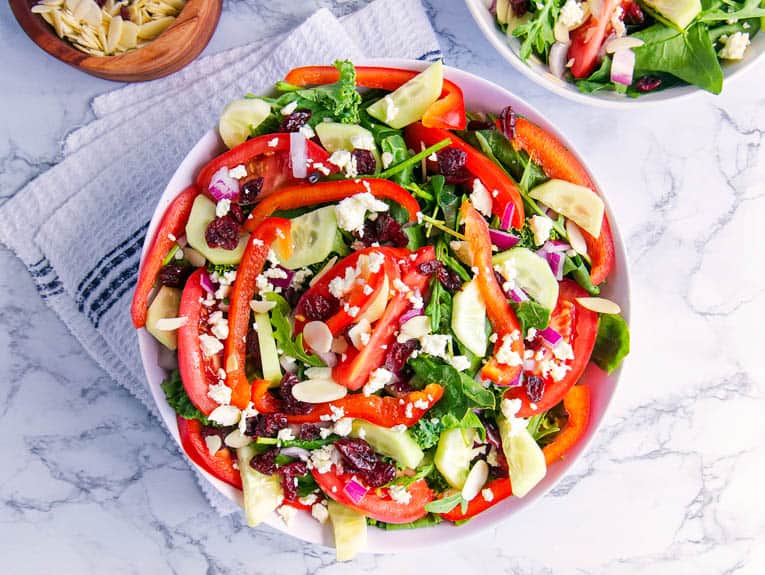


Really interesting read. We are coming to the US for holiday for two months from UK.
What brand would you recommend to replace our Cow and Gate Stage 1 formula? No reflux/colic, not fussy baby.
Hi Lauren! If you’re coming from the UK you already have the best formulas available to you (likely at your local grocery store!) I’d recommend HiPP Dutch or Kendamil for a cow’s milk formula, and Jovie for a goat’s milk formula. If you’re looking for a US based formula that’s comparable to the European varieties, I’d recommend Bobbie. Hope that helps! You can also see this article on my blog for more details!
My baby was born premie at 29 weeks. She was breast feeding until 3 weeks ago. I started her on HIPP bio combiotic pre but did not work for her an caused a lot of colic and gasses so I decided to switched to hipp HA and does not seemed to help her neither. Also as far as I know the EU formulas have less proteins and calories that are necessary for premie babies. What do you recommend me?
Hi Melva! Typically preemies have a tougher time digesting formula in general because their digestive systems haven’t had a chance to fully mature yet. If HiPP PRE didn’t work for her, you could try Holle PRE which is also meant for premature babies. Alternatively, if you want a US formula, you could try Bobbie which is the only US based infant formula that is a close comparison ingredients wise to EU formulas. But it’s false that EU formulas don’t meet the FDA requirements for protein/calories – you can see detailed comparison charts across all nutrients here. But you should pick the formula you feel is best for your little one and that your pediatrician also approves, so if your pediatrician wants you to stick to US only formulas, Bobbie is the one I’d recommend. Hope that helps!
Hi Anjali,
Our baby (7 weeks old now) is on Nutramigen since he seemed to have issues with Similac Pro Advance and Pro Sensitive. We don’t believe he has lactose intolerance yet, but we can’t be sure until we send a wet diaper for testing. In the meantime, he has mucusy poop, which the doctors say we just nedd tp give few more days fpr his body to adjust to Enfamil. We are not sure we agree with that assessment.
Would you have any formula recommendations for our case above? Also, what has been your experience with pediatricians in getting them to recommend or ask flr EU formulas? Asking since lot of pharma companies has free sample and whatnot which tends to swing many of their decisions during prescription (ethical questions aside).
Hi There! To your question – honestly it’s really hard for me to make a specific formula recommendation for your son without speaking with you and learning more about his situation (and getting a diagnosis would be great too – so I hope you are able to get his diaper tested soon!) I would recommend checking out my post about the best hypoallergenic baby formulas and perhaps look into HiPP HA or HiPP Comfort. Regarding pediatricians, honestly every pediatrician is different. I know many that are supportive of European formulas (my kids’ pediatricians were supportive of European formulas), and I know an equal number who are wary of any formulas being imported from anywhere other than US based formulas. I would have an open conversation with your pediatrician about this though, since they can actually see your son in person! And if you would like to talk further, I offer 15 minute consultations that you can book easily here! Hope that helps!
Hi, my baby is almost 6 months and i am thinking to transition him to Hipp stage 2. We have been using hipp German stage 1 all along. However not sure if I should choose the regular or no starch version?
Hi Cristina! I’d choose the no starch version if it were my baby! The starch is just added carbohydrates, but isn’t really necessary nutrition wise (unless your pediatrician recommends a formula that includes starch). Hope that helps!
Hello. I see you recommend Hipp Dutch more often than others. Is there a reason you like this over Hipp Germany? They seem comparable but want to pick the best. Thank you!
Hi There! I recommend HiPP Dutch over HiPP Germany for two reasons: 1) HiPP Germany has added starch 2) HiPP Germany comes in foil bags which is much less convenient to use compared to the tin can that HiPP Dutch comes in. HiPP Germany PRE is comparable to HiPP Dutch Stage 1 in terms of ingredients, but you can only use PRE for babies 0-3 months (up to 6 months at the most), vs HiPP Dutch being ok to use for babies 0-12 months. Hope that helps!
Hello I have my baby on stage 1 hipp Dutch she will be 7 month I know it’s low on iron some reasons she didn’t do well on stage 2 very hard poop should I just stay with stage 1 and add rich iron food ?
Hi Sarah! HiPP Dutch Stage 1 can be used from birth-12 months of age as long as your pediatrician is not concerned about your baby’s iron levels. For babies that eat a large variety of foods and a good amount of iron rich foods from 6-12 months, Stage 1 can work perfectly fine for them. So I would just talk to your pediatrician about the foods your baby is eating and ask them if they are comfortable with you staying on Stage 1 until 12 months of age! Hope that helps!
Hello, I am expecting my first baby in November and I want to purchase some formula ahead of time just to be prepared in case I can’t breastfeed. What do you recommend? Also I’ve read articles that say European formulas contain less iron, is this really an issue/big difference or just trying to scare us into purchasing American formula. I don’t know how much iron babies actually really need.
Hi Mary! I’d probably recommend Kendamil Stage 1 to start, and then you can switch to HiPP Dutch after 3 months of age. Regarding iron, European formulas do contain less iron, but personally it wasn’t a concern for me (and given that so many babies in Europe are drinking these formulas, it’s likely not a concern for them either!)
Here are the facts (taking an example formula like HiPP PRE Germany Stage 1):
– HiPP German Stage 1’s label is based on 100ml of prepared formula, and each serving has 0.6mg of Iron, 1.3g Protein
– A typical US formula – Enfamil Enspire – has a label that is based on 5 fl oz of prepared formula, and each serving has 1.8mg of Iron, 2.1g protein
– To make HiPP German’s label equivalent to Enfamil Enspire – you have to make it apples to apples in terms of quantities:
– 100ml is equal to 3.38 fluid oz, so 5 fluid oz is actually equivalent to 148ml. 148ml of HiPP German Stage 1 has 0.9mg of Iron, 1.9g protein
– According to Stanford Children’s Hospital, babies aged 0-6 months need 0.27mg of Iron per day. So if your baby drinks even just one 5oz bottle of HiPP German a day, they should be getting enough Iron (since 0.9mg is already more than 0.27mg).
– For babies 7-12 months, they need 11mg of Iron per day – and at that point you’d be using HiPP German Stage 2 which has 1mg of Iron for 100ml of prepared formula; so 148ml of prepared formula will have about 1.5mg Iron. So a baby who is 7-12 months of age will have to drink about seven 5oz bottles a day (35oz of formula) to get the amount of iron they need just from HiPP German Stage 2 (but that’s not counting any iron rich foods they might eat). My kids drank about 28oz of formula between 7-12 months, but they also ate a lot of iron rich foods including: iron fortified cereal, white beans, lentils, spinach, tofu, kidney beans, chickpeas, potato and cashews – so I wasn’t concerned about their iron intake when using European formulas.
I hope that helps!
Is there a good European formula for spit up? My baby is 8 weeks old and severe acid reflux. Thank you
Hi! Absolutely! I’d recommend HiPP AR – it’s specifically meant for babies with reflux / too much spit up.
I was wondering if you have heard of the Frisolac Gold Intensive HA. I believe the brand is from Germany. My baby was in Nutramigen because he was very colicky not because and actual allergy. My baby has a lot of issues pooping and we have to constantly stimulate his rectum so he can poop. He is almost 5 months old. He also wakes up at night because he has trouble farting. I don’t know what do anymore. Both my husband and I work and the lack of sleep is killing us. Somebody suggested to put some rice cereal on his last bottle feeding to make him sleep longer. What do you think?
Hi Maria! Unfortunately I haven’t heard of that brand and can’t find an english translation for the ingredients or nutritional label online! I think it’s from Latin America since most of the labels I have found are in Spanish — but I’m not 100% sure. I’m so sorry to hear about your son’s digestive issues! If he is having trouble pooping, I would not recommend putting rice cereal in his bottle as that will only constipate him more, and adding cereal to infant bottles is no longer recommended due to the risk of overeating and the fact that it hasn’t shown to truly help babies sleep longer. Instead I’d try one of the European hypoallergenic formulas like HiPP Comfort — which might be able to alleviate his issues. Try that and let me know how it goes! If it doesn’t work then I can recommend some other options for you!
Is it true that cows in Europe graze mostly on grass whereas cows in the US eat corn? Are there nutritional benefits to eating grass and what are they?
Hi Leslee! Yes that is true! And yes, milk from grass fed cows is healthier: it’s higher in omega 3 fatty acids, vitamin E, iron, and conjugated linoleic acid (source 1, source 2). It is also free of hormones, pesticides and antibiotics that are found in conventional milk (source).
Is there a best way to store formula?
I recommend storing it in an airtight container or tupperware! If you buy HiPP Dutch, the container it comes in is already an airtight container and works well 🙂 Hope that helps!
What is whey?
Why is more whey better?
Milk protein has two parts: Whey and Casein. Breastmilk has a 60-40 whey casein ratio (so 60% whey, 40% casein). Since whey is the dominant protein in breastmilk, formulas that have a similar whey-casein ratio (more whey, less casein) tend to be easier for babies to digest since it mimics breastmilk more easily in the body. Hope that helps!
Hi there! My pediatrician recommends OMEGA 3 and OMEGA 6. Do European baby formulas contain these nutrients?
Hi Barb! Yes they absolutely do – my top recommendation (HiPP Dutch) has both omega 3 and omega 6 included in the formula. Hope that helps!
What are organic standards? What does that really mean?
Hi Hannah! You can see the European Commission’s Organic Standards here!
How do I choose between cow and/or goat based formulas?
Hi Mona! A lot of it has to do with whether your baby has a sensitivity to cow’s milk, or whether you are looking for a gentler option for your baby. You can see more differences between the two here!